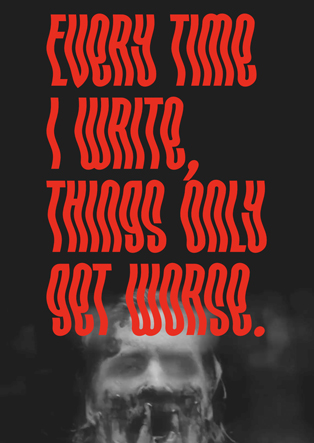
Auteur Theory and Games
In the early 2010s, there was a brief influx of articles discussing whether or not you could apply auteur theory to videogames.
Auteur, a term coined in the mid-1950s by a number of writers for the French film journal Cahier du Cinéma, among them directors Jean-Luc Godard and François Truffaut, describes a filmmaker who stamps their personal style on a film by essentially micro-managing several aspects of its production. The idea, while not uncontested at the time due to the sheer scale of film productions, has preserved. These days, directors like Martin Scorsese and Ridley Scott are considered auteurs.
There’s a certain romanticism to the idea that a single individual could not only develop a recognizable brand for themselves, but maintain it across their work. It’s an idea that implies not only strong creative self-awareness, but also a large degree of creative control. It’s not surprising then, that videogame designers have either been given the label of auteur or ascribed it to themselves.
While the size and ever-changing nature of games development makes it even more difficult to maintain the idea of an auteur, games are also particularly good at exposing the myriad problems of the one person cult.
Auteurism used to be an anti-establishment term. Truffaut and friends were bored with the uniformity of French cinema and looked to American directors for a change in what they considered formulaic. In games however, some of the people seen as auteurs do just that – they invent a formula, albeit one that others want to aspire to.
Take Hidetaka Miyazaki, designer and of the Souls games. Since Miyazaki is also president of FromSoftware, the developer’s name has become synonymous with his work. An entire company, boiled down to the style of one man means that many players now automatically expect a Soulslike whenever FromSoft is mentioned.
This is due to missing transparency regarding the game-making process. On the outside it may look like Nintendo is using its most famous designers name in a similar way – after all Shigeru Miyamoto’s characters such as Mario, Link and Donkey Kong are representative of Nintendo’s output. The culture at Nintendo however, is rooted in an important social aspect in Japanese culture, the importance of the group over the single individual. Mario and co. have changed hands often since Miyamoto’s days as a designer, allowing the series’ design to change in a multitude of ways.
Miyazaki is only one of many at FromSoftware, and yet outside opinion of the importance of a designer’s erstwhile successes eclipses a large group of people, and the designer’s attempt to move on from the association with a singular style.
Often what people like to think of as a style worthy of the term auteur amounts to one game series. That’s not a style, it’s capitalising on a popular concept. People cheer Todd Howard as if the messiah himself has just revealed himself to them, but he has applied himself to essentially two games.
The auteur is a self-made problem. Large group efforts need representatives, but often we don’t find the person responsible for an element we associate with a game until they move on to another project. This also means audiences can undervalue individual contributions. Mass Effect and Dragon Age are “BioWare games”, but the writers who contributes characters or storylines emblematic of the developer’s games have mostly moved on. This forces players and audiences to rethink their idea of what a company stands for.
Rejecting the faulty ide of auteurism can free a creator up, but more often than not, this will mean going directly against the expectations of their audiences. Hideo Kojima is another game designer people are eager to stick the label of an auteur to, especially now that his development studio bears his name. The idea of him being someone with a unique vision however probably came into existence when it became clear that Konami wasn’t able to create an enjoyable Metal Gear Solid game without his input.
When I hear the term auteur, I think of someone with a varied body of work in which individual entries only share very few common denominators. Scorsese’s films for example are known for his desire to examine New York from different angles and to depict male preoccupation with power. You can appreciate his work as part of a greater tapestry if you like, or you can watch one film and be done with it.
Videogames often aren’t complex enough mechanically or thematically to merit such an approach, because the body of work of individual designers either isn’t large enough or they only commit to one part of the equation. David Cage for example, would love the label for making games that in his own words, are “not about having fun. Since your game not adhering to a subjective value the meaning of which not even theorist can agree on is kind of broad however, Quantic Dream’s games are instead known as “cinematic experiences”, meaning games with little gameplay, something they don’t hold a monopoly on, either.
It’s the very idea of holding a monopoly to anything, of creating that one unique thing that will define your name forever that game makers who ascribe a certain status to themselves are so preoccupied with. Calling yourself a “legendary game designer” has a tendency to establish you as a credible source to outsiders and guarantees an in-built fanbase for future projects, even when the direction and quality of such projects can be vastly different if the only factor they have in common is one person.
Auteur is now a term far removed from the idea of constant reinvention in tune with a personal philosophy, but to make celebrities out of people many players would otherwise not know about. Following someone’s work unquestioningly is closer to stan culture than critically engaging with output for the outputs sake.





